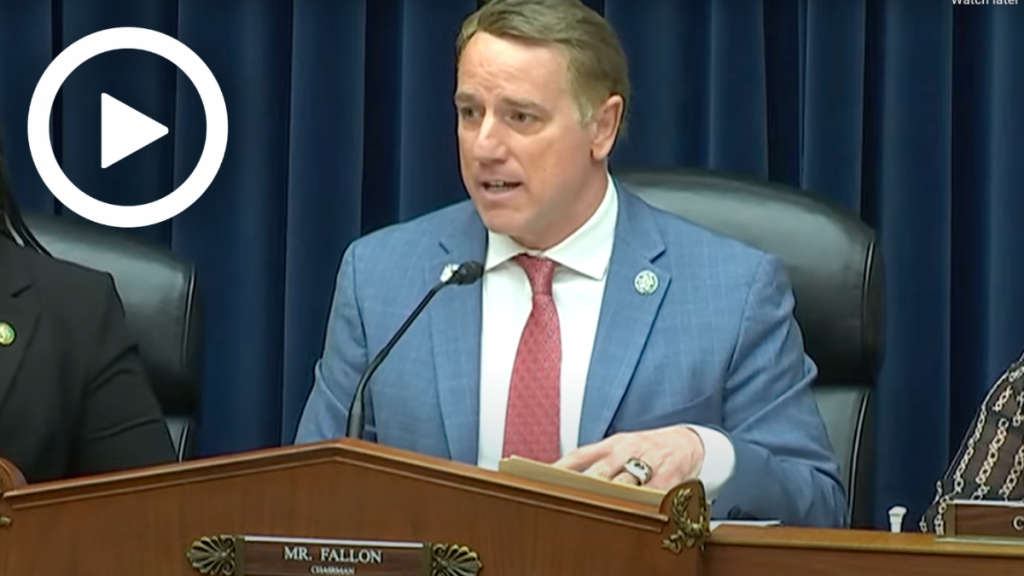Fallon: Apprenticeships Help Businesses Find Qualified Job Seekers, Develop Talent, Move the Economy Forward
WASHINGTON—Subcommittee on Economic Growth, Energy Policy, and Regulatory Affairs Chairman Pat Fallon (R-Texas.) opened today’s subcommittee hearing titled “The Power of Apprenticeships: Faster, Better Paths to Prosperous Jobs and Less Waste in Higher Education” by noting that even while students are paying more than ever for expensive degrees, manufacturers, businesses, and employers are struggling to fill jobs with qualified workers. Apprenticeships and paid training positions can help connect students to full-time positions, develop talent, and move the economy forward.
Below are Subcommittee Chairman Fallon’s remarks as prepared for delivery.
The topic of today’s hearing is one that is not only important to me but should be important to every Member of Congress: how today’s education impacts the workforce of tomorrow.
For decades, Congress has spent billions—without pause—pushing students into undergraduate and graduate programs after high school.
But this shouldn’t be the only path for our younger generations. And it can’t be.
According to a survey the National Federation of Independent Business conducted last year, almost half of business owners reported having job openings that they could not fill.
Despite the enormous taxpayer investment into higher education, businesses are struggling to find qualified workers who can do the job.
And these expensive degrees are just getting more and more expensive. Federal student loan debt is now over $1.6 trillion dollars.
It really seems that as the cost of the degree has increased, the value of the degree has decreased.
So how are our nation’s manufacturers and businesses expected to find qualified jobseekers when we are not effectively developing talent or training hires?
After decades of spending on higher education, what we have learned is that we need to be investing in the skilled trades.
Doing so will truly help drive economic prosperity.
One of the ways this can be achieved is through apprenticeships, which offer paid training positions to students that, in many cases, lead to full-time positions.
Career and technical education, or “CTE,” programs are another component and help connect students with the practical skills that they need to be successful in careers in their communities.
Although the federal government already has a hand in overseeing apprenticeship programs, it comes at a high cost—with layers of bureaucracy.
The federal apprenticeship programs require burdensome paperwork and excessive data collection, driving up costs for businesses who want to hire apprentices.
The high costs of participation in these federal programs makes it difficult for employers to take advantage of them.
And of course, these federal apprenticeship programs are vulnerable to waste, fraud, and abuse.
At the very least, what we’re left with is an outdated system that isn’t nimble enough to advance with the rapid pace that our workforce needs are changing.
We have to reevaluate how we’re standing in the way of our own success.
We should be encouraging businesses to partner with educational institutions in their communities to develop the local talent needed to drive our economy forward and, at the same time, help students find high paying jobs in in-demand fields.
There are many examples of this success across our country, and sharing this knowledge is something that every Congressional district can benefit from.
America’s economic competitiveness tomorrow depends on the decisions that we make today.
I hope our conversation this afternoon can shed light on some of the ways we can help both businesses and employees thrive by promoting educational programs that are as diverse as the people that they serve.
Thank you to all of the witnesses for being here today.
